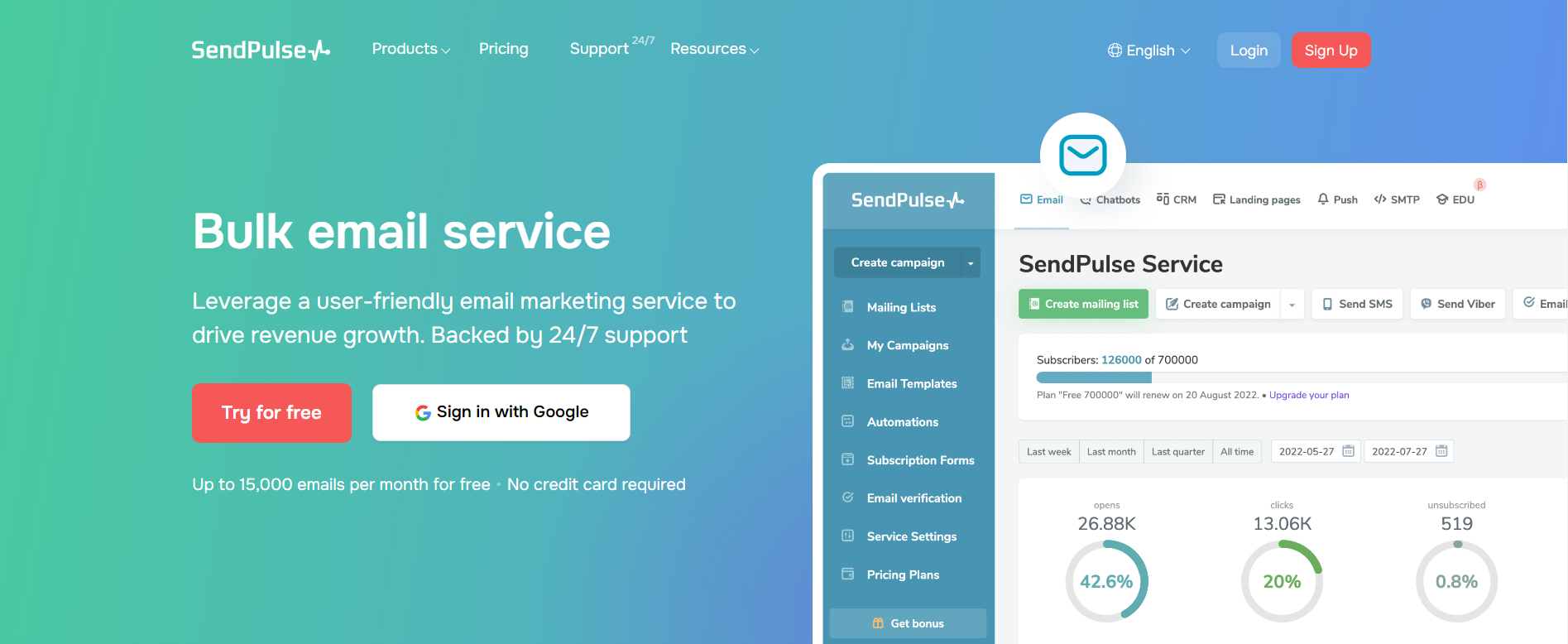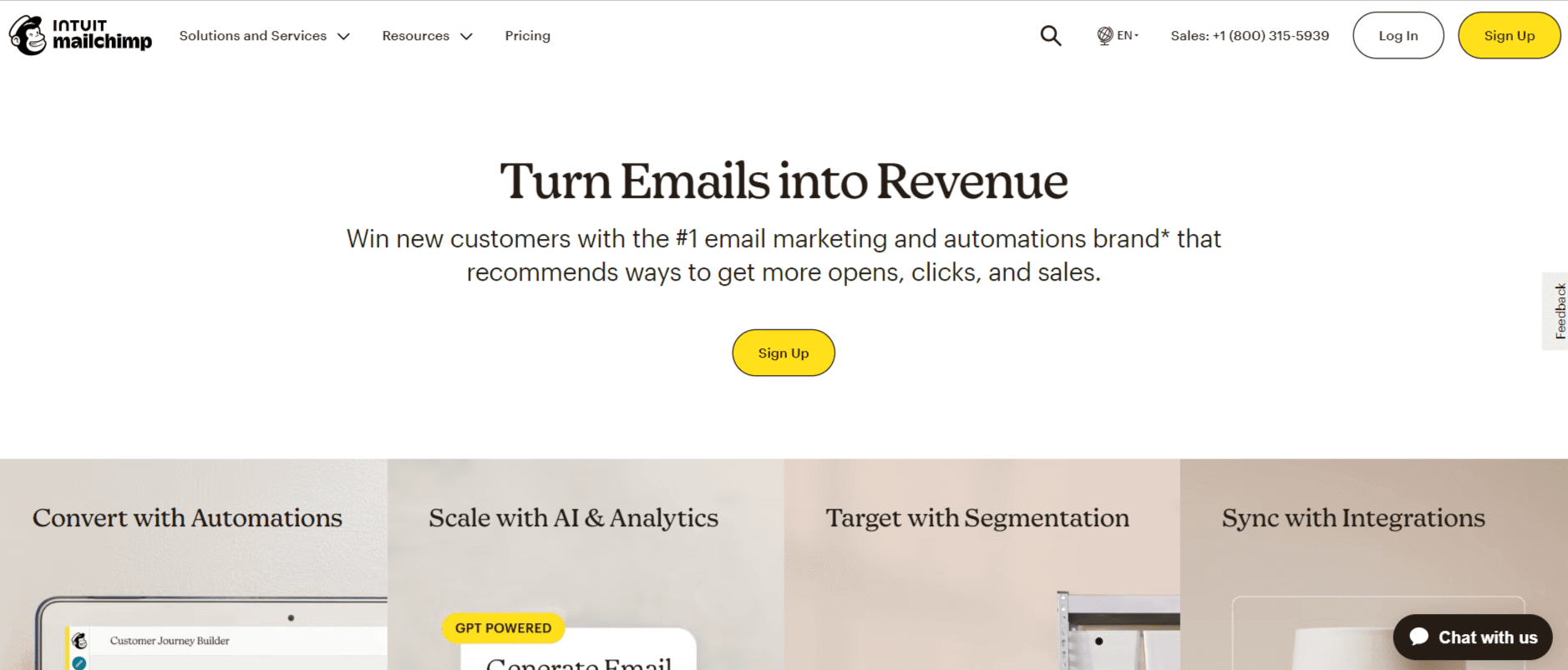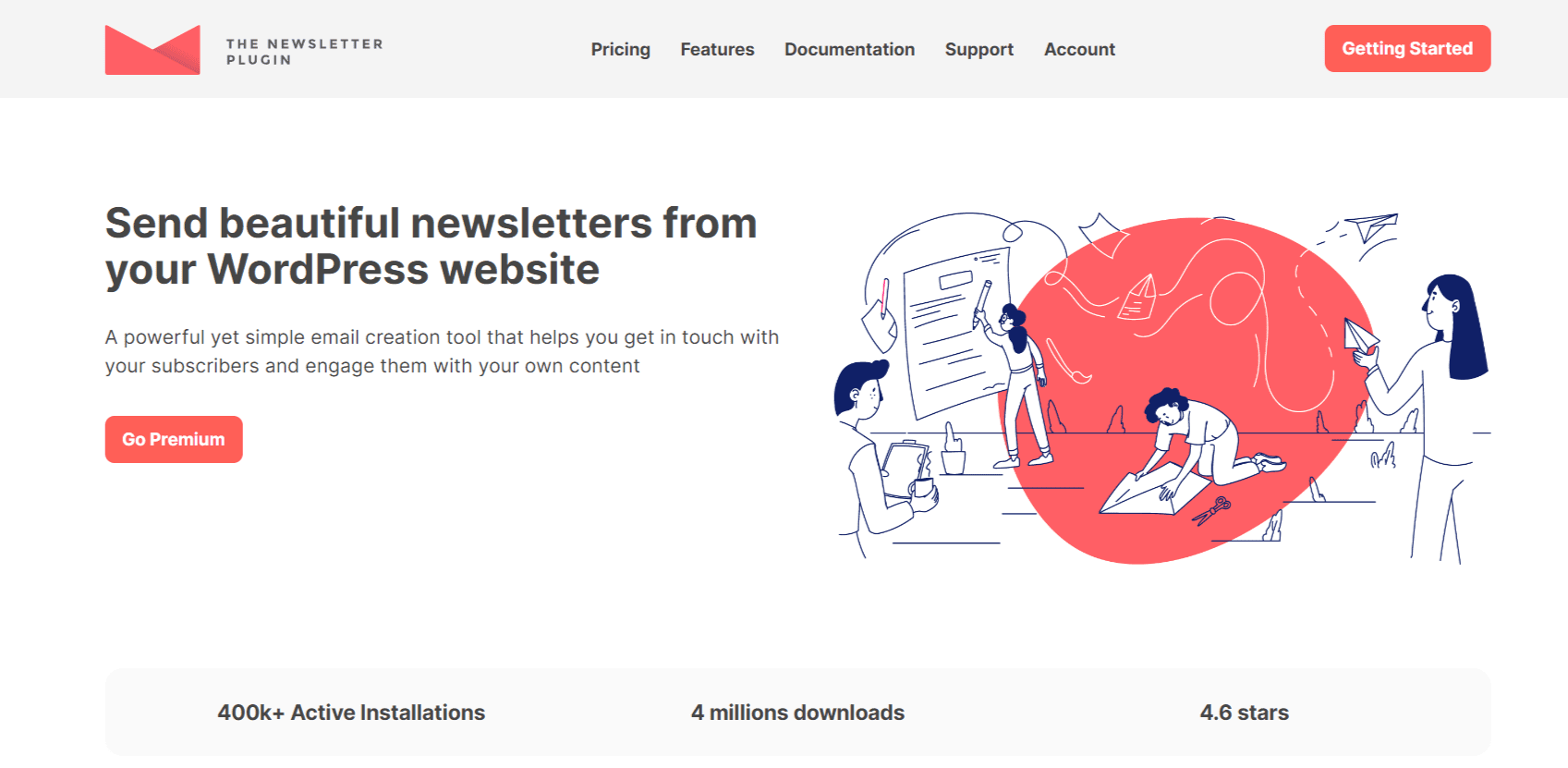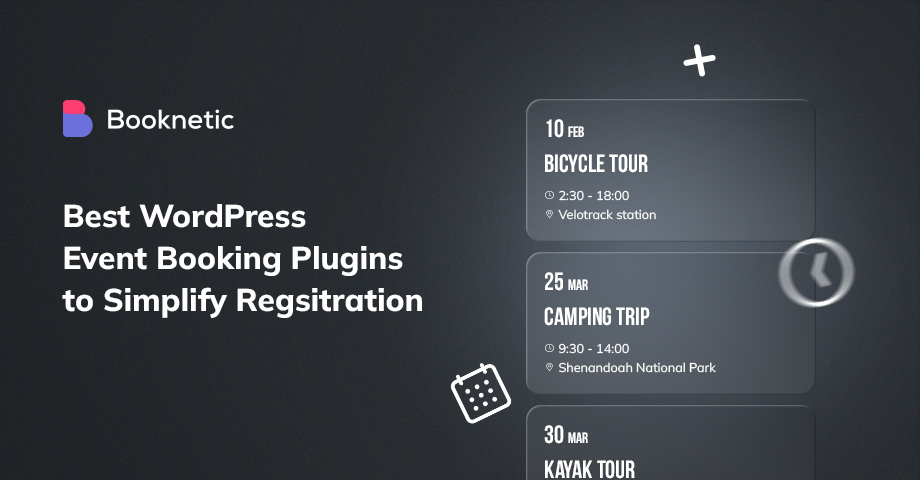
Did you know that WordPress powers over 43% of all websites on the internet?
One of the reasons why it’s so popular is because the platform has many plugins and extensions. For example, on the WordPress.org plugin directory alone, there are more than 59,000 free plugins.
Each plugin has its function. But if you want to convert and nurture your website visitors into loyal customers, you should set up a newsletter.
WordPress plugins come in handy in that regard. Some newsletter plugins are easy to use, while others feel you need to be a technical guru just to figure them out.
That’s why we've rounded up seven of the best WordPress newsletter plugins to help you take your business to the next level.
What Qualifies As the Best WordPress Newsletter Plugin?
Choosing the best newsletter plugin for your WordPress site can significantly impact your email marketing efforts. But what makes a free WordPress newsletter plugin stand out?
Here are some factors to consider:
- Email automation: Choose a plugin that lets you automate your email workflows so you can spend time on more essential marketing activities.
- Drag-and-drop email editor and premade templates: This helps you quickly create stunning newsletters that look professional.
- User-friendly interface: The plugin should be easy to use, even for complete email marketing beginners.
- High email deliverability: Your emails must reach your subscribers' inboxes for you to engage them. So, a good plugin should ensure high email delivery rates to minimize the chances of your newsletters ending up in the spam folder.
- Real-time reports and analytics: Understanding your campaign's performance is crucial so you can improve it. Therefore, the plugin should offer real-time insights and monitor opens, clicks, and other relevant metrics.
- Integration capabilities: The newsletter plugin should integrate seamlessly with other marketing tools to enhance your overall marketing strategy.
7 Best WordPress Newsletter Plugins To Boost Customer Engagement and Sales
Based on what qualifies as the best newsletter plugin for WordPress, seven email marketing services check all the boxes.
Here are the plugins we’ll cover:
- Sender
- GetResponse
- HubSpot
- Mailchimp
- Brevo
- Constant Contact
- The Newsletter Plugin
Let’s look at each one in detail.
1. Sender

Image source: Sender
Sender is one of the most affordable WordPress newsletter plugins with premium capabilities. The platform has email and SMS marketing automation capabilities that help you easily set up triggered workflows to recover abandoned carts, send welcome emails, or nurture your leads into loyal customers.
.png)
Thanks to its drag-and-drop email builder and library of premade templates, you can also design professional-looking newsletters in minutes.
Moreover, with Sender, you can create high-converting popups (like spin-to-win or exit-intent popups) to capture leads and nurture them into loyal customers. And with audience segmentation, you can send relevant messages to the right people.
After you send your newsletters, its detailed analytics and heatmap will show you how your campaigns perform in real time so you can improve them accordingly.
The platform boasts high email deliverability rates, so you never have to worry about your emails landing in the spam folder. You can be sure your messages will always reach your intended recipient at the right time.
In a nutshell, Sender is your go-to platform if you want to engage your subscribers effortlessly and grow your business and revenue.
Key Features
- Automated email and SMS marketing campaigns;
- Advanced segmentation and personalization;
- Drag-and-drop email builder and library of premade email templates;
- High-converting popups and high email deliverability;
- Detailed analytics and newsletter heatmap;
- Integration with other ecommerce platforms, CRMs, and CMS.
Pros
- Most affordable (yet powerful) WordPress newsletter plugin;
- Easy-to-use interface that’s ideal for beginners;
- You can combine email and SMS campaigns for an omnichannel experience;
- High email deliverability ensures your messages reach customers’ inboxes;
- The automation workflows are easy to build.
Cons
- Sender branding on the Free Forever plan;
- You can only access SMS campaigns on the paid plans.
Pricing
- Free Forever plan for up to 15,000 monthly emails and 2,500 subscribers;
- Paid plans start at $8 per month for up to 12,000 emails.
2. GetResponse

Image source: GetResponse
Next on our list is GetResponse, a marketing automation software that offers a wide range of features to engage with your audience.
The platform helps you design responsive emails that look great on any screen. Plus, with its AI Email Generator, you can craft subject lines and messages optimized for your email subscribers much faster. This means less time brainstorming and more time engaging with prospects.
In addition, GetResponse offers tools to create landing pages, webinars, and popups to capture leads. These tools integrate seamlessly with your WordPress website, ensuring a smooth user experience.
With its autoresponders, you can automate your email sequences to reach customers at the right time and with relevant content.
For WordPress website owners, GetResponse is an ideal newsletter plugin that helps you create meaningful engagements, generate leads, and drive sales.
Key Features
- Email marketing automation;
- Lead generation tools and subscription forms;
- Advanced segmentation for targeted online communication;
- One-click integration with the most popular ecommerce platforms.
Pros
- AI Email Generator to craft subject lines and emails in seconds;
- Offers variety of tools like popups and webinars to capture leads;
- Has professional customer service support;
- Effective landing page builders.
Cons
- Automation workflows have a steep learning curve;
- Pricing might be a bit high especially for startups or small businesses with limited budgets.
Pricing
- Free 30-day trial;
- Paid plans start at $15.58 per month (billed yearly) for up to 1,000 contacts.
3. SendPulse

SendPulse offers a comprehensive suite of WordPress plugins tailored for effective email marketing. With its robust email marketing features, users can create visually appealing newsletters using a drag-and-drop editor and access customizable templates. Marketing automation enables users to set up targeted campaigns and personalized workflows, enhancing user engagement.
The platform also supports pop-ups and subscription forms to effectively capture leads, allowing site visitors to easily subscribe to newsletters or promotions. These forms can be tailored to match your site’s branding and can also trigger automated messages based on user actions, such as a welcome email after signup.
Beyond these features, SendPulse integrates seamlessly with various tools, providing analytical insights to track campaign performance. This integration, along with advanced segmentation and A/B testing capabilities, ensures tailored content delivery, maximizing the effectiveness of your email marketing strategy on WordPress.
Key Features
- Drag-and-drop newsletter editor
- Customizable templates
- Marketing automation, segmentation and targeting
- Lead capture pop-ups and subscription forms
- A/B testing and performance analytics
Pros
- User-friendly interface simplifies email creation
- Powerful automation saves time and improves targeting
- Extensive template library for quick design
- In-depth analytics help optimize campaigns
Cons
- Learning curve for advanced features may be steep for beginners
- Limited support options for free-tier users may hinder timely assistance
Pricing
- Free email marketing plan with limited features for up to 500 contacts.
- Paid plans start at $6.40 per month for 500 contacts, scaling with the number of contacts.
4. HubSpot

Image source: HubSpot
HubSpot is a great marketing automation software with a CRM system. Its email marketing tools allow you to craft and personalize your messages without the need for designers. That means you can create and send optimized emails that boost open and clickthrough rates, even if you're a beginner.
In addition, its email tracking software notifies you when a prospect opens your messages or clicks a link. That way, you're able to get insights into who's engaging with your content. And with its integration into HubSpot's CRM, you get accurate data for personalizing follow-ups.
HubSpot also offers sales automation tools to automate tasks, set up personalized email sequences, and even rotate leads. A/B testing and analytics also help you optimize your campaign performance.
Key Features
- Email automation platform with CRM;
- Drag-and-drop editor;
- A/B testing and campaign analytics;
- AI content writer;
- Email tracking features.
Pros
- Has a CRM system that offers accurate customer data;
- You can easily integrate the platform with lots of business tools;
- The user interface is intuitive, making it easy to get up to speed with the marketing hub;
- Helpful customer support.
Cons
- Some crucial features like the CRM system can only be accessed through its expensive plans;
- Advanced features can be confusing for non-experienced users.
Pricing
- Free email marketing plan with limited features;
- Paid plans start at $20 per month for up to 1,000 marketing contacts.
5. Mailchimp

Image source: Mailchimp
Mailchimp is another WordPress newsletter plugin suitable for growing businesses. With its advanced automation, you can set up emails to be sent when specific triggers are met.
What sets Mailchimp apart is its AI-powered tools. These tools use artificial intelligence to generate emails, draft responses, and even predict the best times to send campaigns to get the most engagement.
On top of that, the platform has advanced segmentation features that help you target specific groups based on their behavior and send highly personalized messages to boost engagement.
But that's not all. Mailchimp integrates with many platforms like QuickBooks, Shopify, and Drupal. This means all your tools can work together to streamline your processes and make your marketing efforts more effective.
Key Features
- Email marketing automation;
- AI and data tools to customize designs, create content, and analyze performance;
- Advanced segmentation;
- Integration with other tools.
Pros
- High email deliverability rate;
- Easy-to-use interface;
- Comprehensive email campaign reports;
- Automation is easy to implement.
Cons
- Contact list management isn’t intuitive;
- The Free version is limited and provides fewer features on the lower paid plans.
Pricing
- Free version available for up to 1,000 email monthly sends;
- Paid plans start at $13 per month for up to 500 contacts and 5,000 monthly email sends.
6. Brevo
.png)
Image source: Brevo
Brevo is an email marketing service designed to improve your online marketing and sales efforts. Its sales platform empowers you to track deals, automate repetitive tasks, and manage prospects efficiently with tools like shared inboxes and dedicated reports.
On the marketing front, Brevo's platform offers diverse campaign options, from emails to SMS and even WhatsApp campaigns. The drag-and-drop feature makes creating professional emails a breeze, even without design skills. Plus, with its landing pages, you can easily promote your brand, collect leads, and turn visitors into customers.
With a 99% email deliverability rate and easy CMS integration, you can trust Brevo to handle your email communications seamlessly.
Key Features
- Email, SMS, and WhatsApp campaigns;
- Live chat and chatbot integration;
- Sales platform to follow leads closely;
- Transactional emails.
Pros
- Offers a CRM with a sales pipeline;
- High GDPR compliance;
- Provides WhatsApp campaigns to better engage customers;
- You can easily set up marketing automation.
Cons
- Offers few template designs;
- The Free version is quite limited with only 300 emails per day.
Pricing
- Free plan with 300 emails daily and unlimited subscribers;
- Paid plans start at $25 per month with 20,000 monthly emails and unlimited contacts.
7. Constant Contact

Image source: Constant Contact
Constant Contact is a great email marketing software tailored for WordPress businesses that want to improve their digital marketing campaigns.
It offers a suite of automation tools designed to make email marketing simple and effective. Whether it's a welcome email series for new subscribers or reminders for abandoned carts, the platform ensures timely and relevant communication.
For those looking to grow their contact list, Constant Contact's lead generation and CRM tools do that job perfectly. They help businesses capture new leads and manage relationships with existing customers. Plus, with A/B testing and analytics, you can optimize your campaigns for the best results.
Key Features
- Lead generation and CRM tools;
- Email and digital marketing automation;
- List-building tools;
- Social media and SMS marketing.
Pros
- Advanced heatmaps and reporting features;
- Offers lots of beautiful template designs;
- Valuable A/B testing and survey features;
- You can easily handle a large number of contacts.
Cons
- Interface is a bit challenging to use;
- Customer service can be a bit slow to respond.
Pricing
- Free 14-day free trial;
- Paid plans start at $12 per month for up to 500 contacts.
8. The Newsletter Plugin

Image source: The Newsletter Plugin
Our final software is The Newsletter Plugin, a simple email marketing tool that helps you engage subscribers with quality content. With its integration into WordPress, you can schedule your newsletters to be sent directly from your WordPress dashboard. You can also set up automation workflows with different content planned for each day, week, or month.
The autoresponder feature lets you create an unlimited email series, perfect for welcoming new prospects or engaging them with product offers. And with its integration with form builders like Ninja Forms, you can effortlessly turn website visitors into newsletter subscribers.
For WooCommerce users, The Newsletter Plugin seamlessly connects with the ecommerce platform. This way, you can use your WooCommerce data to segment customers based on the products they purchase and send them relevant offers in your newsletters.
Key Features
- Newsletter automation;
- Form builder integration;
- Autoresponders to create unlimited email series;
- Real-time reports to track newsletter performances.
Pros
- Integrates well with WordPress as it’s designed specifically for the platform;
- The drag-and-drop editor is easy to use;
- You can manage subscribers directly within your WordPress dashboard;
- Has a range of premium add-ons to extend its functionality.
Cons
- The level of customer support is limited;
- The plugin can sometimes confict with other plugins or themes.
Pricing
- Free basic plan available with limited features;
- Paid plans available starting from $69 for three sites.
Best WordPress Newsletter Plugins: Key Takeaways
There you have it. Seven of the best newsletter plugins to install in your WordPress website. These tools will help keep your audience in the loop with relevant and personalized content so you can boost engagement and sales.
Remember, a good WordPress plugin should offer email automation features that align with your business needs and budget.
Sign up for our newsletter
Be the first to know about releases and industry news and insights.
Booknetic is a simple yet powerful plugin for accepting online bookings & payments on your WordPress site.



